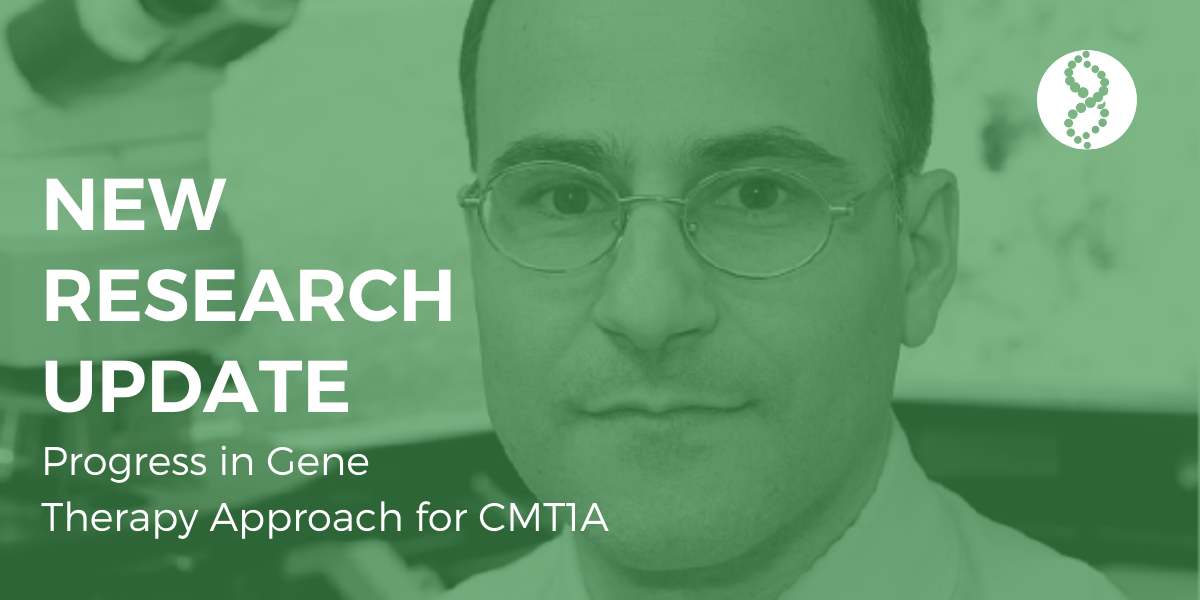By: Keith N. Fargo, Ph.D., Chief Scientific Officer, CMT Research Foundation

The CMT Research Foundation is currently funding a research project led by Dr. Kleopas Kleopa and his team at the Cyprus Institute of Neurology & Genetics to study a gene therapy approach to lower levels of PMP22, the gene that causes CMT1A. While no one can predict the outcome of scientific research with certainty — and these studies are still in the animal testing stage — reducing PMP22 levels may prevent people with the gene for CMT1A from ever experiencing symptoms, and it might even reverse some nerve damage in people whose CMT1A has already progressed.
We are pleased to announce that Dr. Kleopa and his team have made tremendous progress. Recently, they have shown that they can deliver the gene therapy to peripheral nerve cells using viral machinery. The viral vector does not cause disease, but serves as a vehicle to deliver the genetic therapy to the affected cells in the peripheral nerves. In a series of animal studies using a mouse model of CMT1A, the team in Cyprus has shown that the therapy reduces PMP22 protein in the peripheral nerves substantially, and this is accompanied by improvements in nerve myelination and the ability of the nerves to conduct electrical impulses. Most importantly, the therapy improved strength and coordination in the mice.
We will continue to keep you updated on the latest progress from this study. In the meantime, learn more about our research priorities and see all the research we’re currently funding, including more projects focused on CMT1A. You can also sign up to be the first to receive email updates about new research and scientific progress.
Help Advance CMT Drug Development
While no treatments or cures currently exist for CMT, the science to change that does.
Your donation to the CMT Research Foundation will fund cutting-edge research that’s solely focused on drug development and continue moving promising projects like the one at the Cyprus Institute of Neurology & Genetics forward without delay. Together, we can change the course of CMT during our lifetime — and for every future generation.
